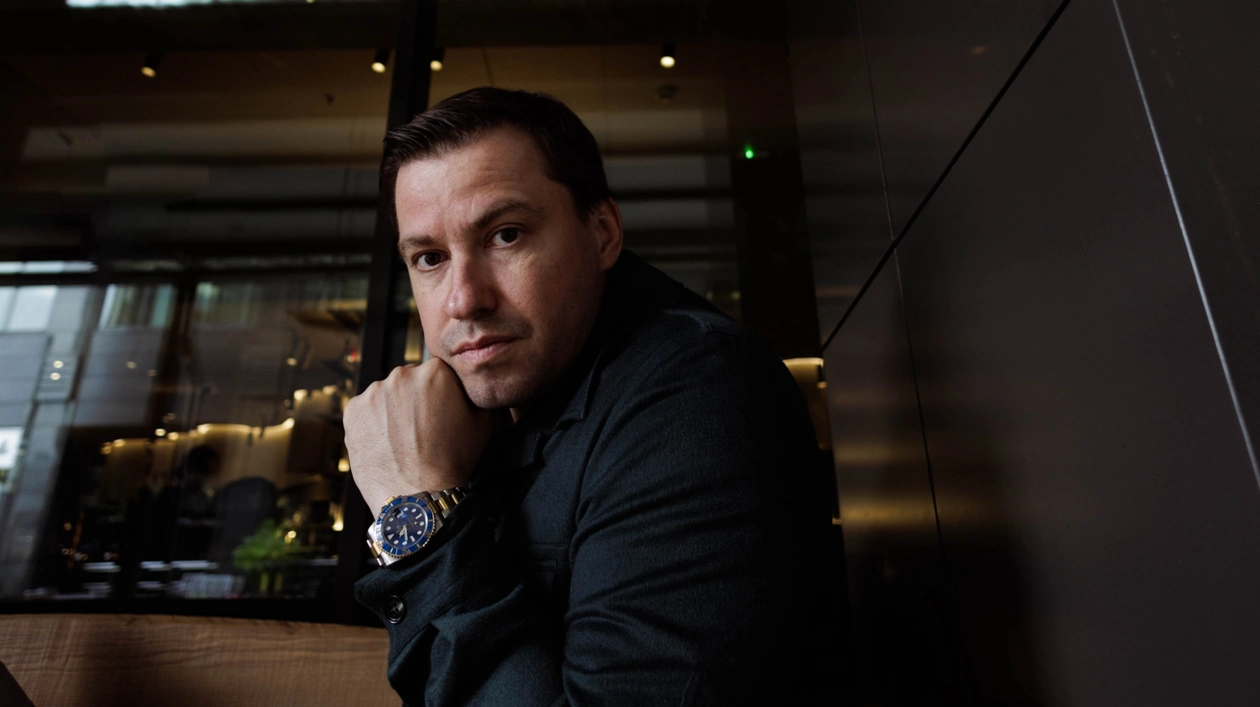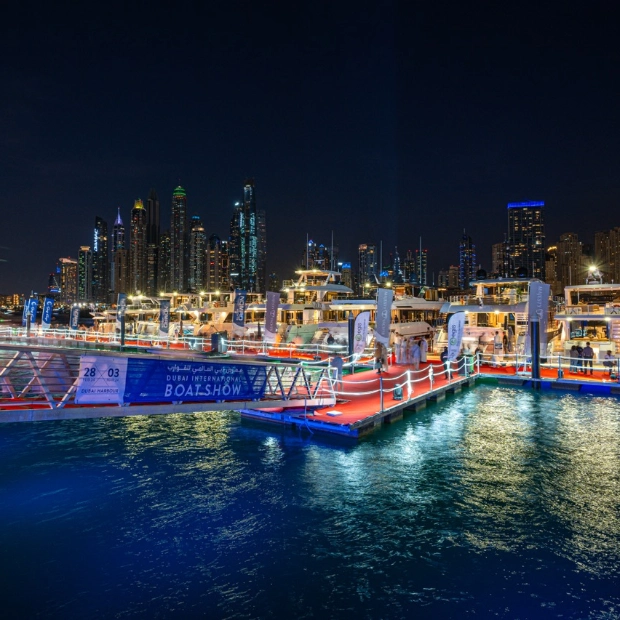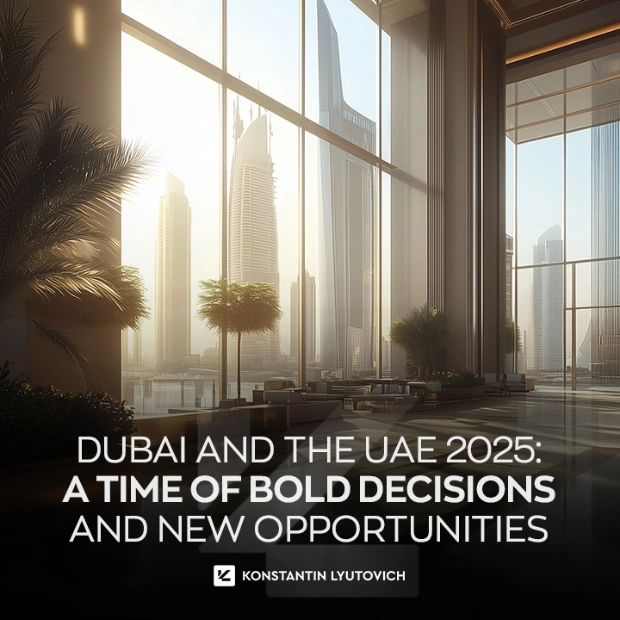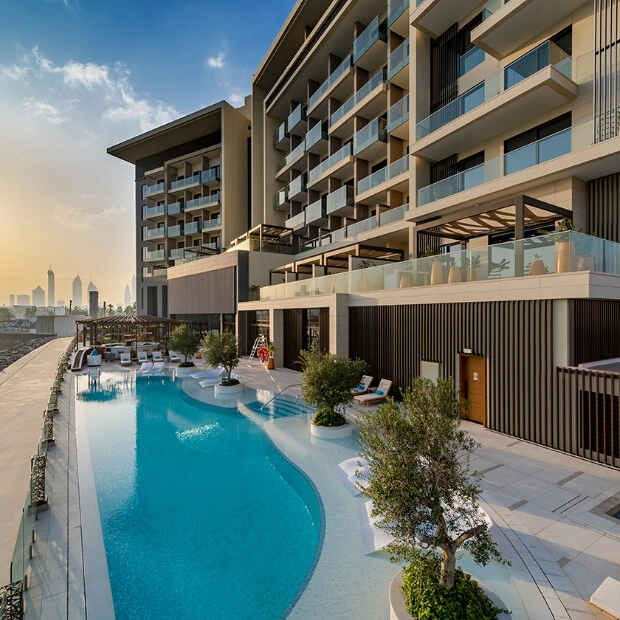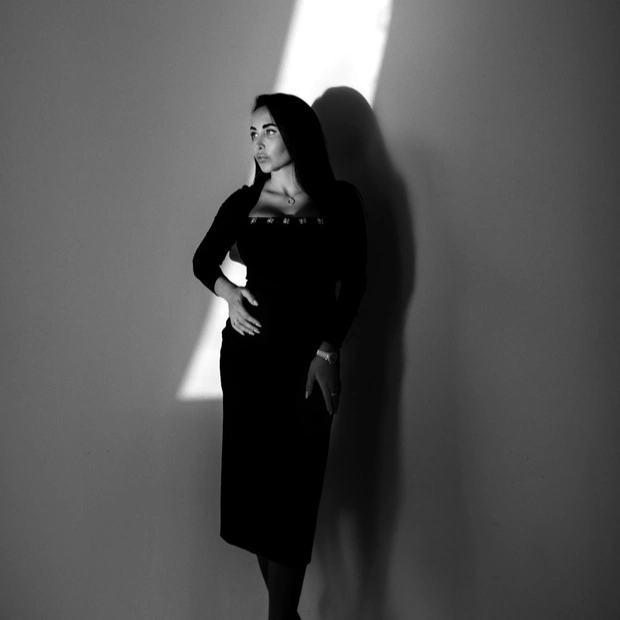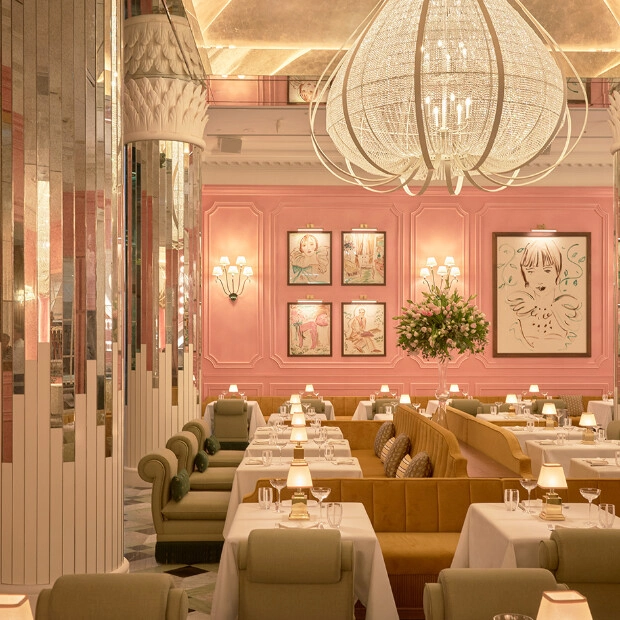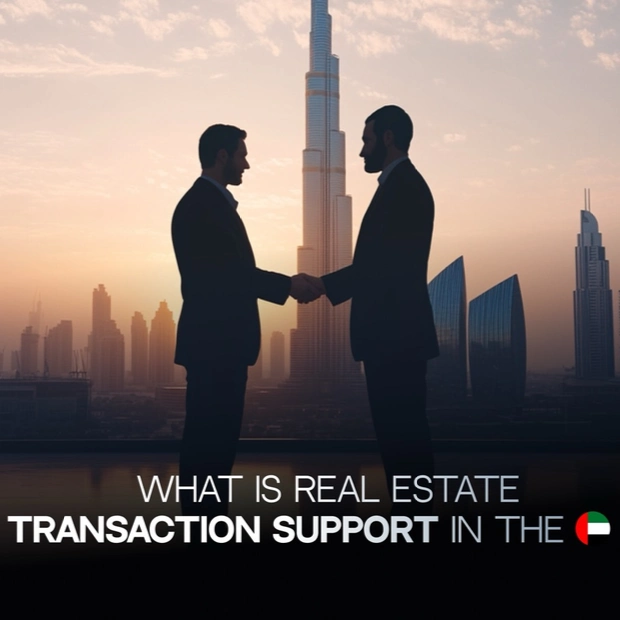Action equals success
Today's world is built on trust. It doesn't stem from shared experiences or expensive clinics, nor from high service fees. Nowadays, people are more concerned with knowing who is treating them, building their home, or managing their finances. Commerce is becoming a matter of personal branding. Companies are shifting strategies, realising that people are drawn not to organisations, but to individuals. The personality of a leader becomes a crucial factor, and this is always more engaging and better. How to become a leader whom a team will follow and to whom all readers of this column will turn can be learned from the story of Artavazd Manukyan, the founder of Aesthetica Clinic in Dubai.
I grew up in a family of doctors; I'm the third generation in our family to pursue medicine. My father, an obstetrician-gynaecologist, is now retired, while my mother is a paediatrician. It was clear that our family lacked a dentist. From childhood, I was prepared for a career in medicine, and I did not resist. In fact, I quite enjoyed it. The decision to specialise in dentistry came closer to the end of my school years. My father hoped I would follow in his footsteps or become a surgeon or cardiologist. However, circumstances led me to choose dentistry. The desire to open my own clinic wasn't a spur-of-the-moment decision. It was a path I followed, developing in the profession, acquiring manual skills and experience.
My specialisation is prosthetic dentistry, particularly focused on prosthetics and aesthetic prosthetics. This field always fascinated me. To advance in my profession, one must work alongside a skilled ceramicist. The best ceramicists usually practise in capital cities, so relocation was necessary to collaborate with them. In 2009, I moved to the capital and began working in clinics as an employee. I familiarised myself with the community and grew professionally. As I gained experience and expanded my network of professionals, I felt the urge to create my own project. As an employee, you're limited by resources: you work with a specific laboratory, materials, concept, and equipment. Development requires greater freedom and the opportunity to invest in oneself, attend professional symposiums, and meet international colleagues. A typical clinic director won't be happy that their employee is absent due to studies and travel.
This journey leads you to become interesting both to yourself and your patients. The acquired knowledge and skills allow you to understand where and how to apply them to achieve an unparalleled level of quality in work. Patients receive results that have a wow factor. Therefore, creating your own project becomes essential for realising all ideas and approaches exactly as you envision them.
In 2014, I opened my first clinic. It was during a time of crisis, which became a catalyst for us. In such periods, people tend to invest in themselves and their health, which is particularly relevant for medicine and dentistry. Thus, this crisis turned out to be a stimulus for our development. Opening the clinic was a challenge. The first year was about survival: the main thing was to meet financial obligations on time. But gradually, the project began to grow and transform from the initiative of one doctor into the work of a full-fledged team. After all, it's impossible to work alone for long: being both surgeon and prosthetist, director and accountant. This logically led to staff expansion.
For any clinic, the key figures are the doctors and their specialisations. Our development progressed in stages, much like the five-year plans of the Soviet era. In 2009, I moved to Moscow, and five years later, in 2014, I opened my first clinic. By 2019, we had launched a second clinic in Barvikha. In 2023, we unveiled our international project in Dubai, a dental clinic on Bluewaters Island. Much has changed over this period: in medicine, pricing, and the dental market.
Dentistry is one of the fastest-evolving branches of medicine. This rapid advancement is driven by the integration of artificial intelligence and digitalisation. Many processes have become digital. Previously, impressions were taken with plaster, then silicone materials, and now we use optical scanners. Digital impressions are sent to the laboratory via email as STL files.
Such technological advancements allow us to provide patients with higher quality and faster services. Dentistry continues to evolve, and our task is to keep pace with the times to offer patients the best possible treatment. When establishing our project in Dubai, we created a dental laboratory right within the clinic, obtaining the necessary licence. All treatment planning is conducted using specialised software. We create a photo protocol, capture the initial situation, scan dental structures, and virtually model the future shape of the teeth.
A few years ago, this seemed miraculous; now it is reality. The new design is printed on a 3D printer using special plastic. We then apply it in the patient's mouth, producing a stunning effect. Printing is also possible in metal, and in the future, perhaps even in ceramics, which will reduce costs and make services more accessible to a larger number of patients.
The development is heading towards digital technologies, scanners, and artificial intelligence. Some medical holdings are already working on replacing doctors with robots for complex procedures. Tooth preparation or implant placement is performed by a robot using AI algorithms. As a doctor, this prospect alarms me not out of fear of losing my profession but due to the robot's lack of empathy. It cannot understand or feel a patient's pain, fear, and anxieties. The work of a dentist involves not only procedures but also a psychological aspect. We are dentist-psychologists. It is crucial to discuss with the patient, listen to them, and ensure their comfort and calm before starting treatment.
The psychological component also includes conversations with patients about prevention. I believe that modern medicine aims to prevent diseases from developing. This field is known as preventive medicine. It focuses on maintaining health and preventing diseases, including anti-ageing medicine. In dentistry, especially aesthetic dentistry, we can also speak of such an approach. Teeth can be healthy but may not appear as youthful as the patient desires. This is due to wear, colour changes, and harmful habits over a lifetime. There comes a point when a patient wishes to look ten years younger. This is where anti-ageing dentistry comes in. We offer veneers without preparation or drilling. This is an example of minimally invasive intervention.
The two fundamental pillars of modern dentistry are prevention and minimal invasiveness. These directions run parallel, and I firmly believe they represent the future of dentistry. What does minimising intervention entail? Take, for instance, a patient with early-stage caries, known as the white spot stage. In the past, a dentist would have immediately drilled the tooth and placed a filling. However, every filling eventually requires replacement. The next dentist, five years down the line, would drill even more, compounding the problem. Nowadays, we have a special product called ICON that allows us to treat early-stage caries without drilling. By applying multiple layers of this product, we infuse the enamel with microelements, triggering a chemical reaction. This enables us to eliminate caries at the white spot stage through medicinal means.
Minimally invasive intervention is also relevant to tooth preparation. In the past, when I spoke at medical conferences about the possibility of avoiding tooth preparation, reactions were mixed: some grimaced, others laughed or pulled faces. I recall this was shortly after the COVID-19 pandemic, at a forum in Crocus. Following my presentation on the importance of minimal invasive intervention and non-prep veneers, an orthodontist took the stage and declared, "I love grinding teeth; don't bother feeding me bread, just let me grind." This was indicative of outdated thinking. Imagine my delight when, a couple of years later, I received an Instagram post from this same doctor stating that he now practises minimally invasive techniques. He strives to preserve dental tissues, which nature has created. It was my personal little victory — he had listened to me. It's heartening to see that the younger generation of doctors genuinely considers and cares about preserving natural tissues.
The methodology of minimal intervention didn't come overnight. I didn't wake up one day with the resolution to stop grinding teeth. It was a long journey. My primary specialisation was prosthetics using ceramic veneers. I dedicated many years of my life to this — 18 years in the profession. We used to grind and prepare teeth and understood how traumatic and challenging this process could be for some patients. The anaesthesia and post-fixation sensitivity of veneers, which sometimes lingered for months.
Gradually, we adopted a new approach. A case in point was a young woman who visited us in 2017. She had good teeth, but they didn't compliment her face: they were small with diastemas — gaps between teeth. We found a non-prep solution, marking an important step in our practice.
One day, we decided to try this new approach. Our master technician, Nikita, assisted us. I proposed creating a restoration without preparation. We set to work and crafted an ultra-thin ceramic restoration. The thickness of the piece was merely 0.2-0.3 mm, equivalent to 200-300 microns. The result was natural and high-quality, without interfering with the tooth's structure.
This experience prompted us to ponder: perhaps, in certain cases, we can forego the traditional drilling methods. We began to view this as an additional tool in a dentist's repertoire. Naturally, sceptics and critics abound, especially in such a vast industry where most professionals adhere to conventional methods. Yet, we believe it's worth exploring new approaches, even if they challenge established practices.
Changing one's mindset and work routine is no easy feat. If you've been practising a certain way for a decade, it's far simpler to continue in that vein than to learn something new. However, our method is not a panacea and isn't universally applicable. For instance, if a patient has large teeth with pronounced contours, our technique might prove ineffective. Ceramic has a certain volume and elasticity index, and for it to be successfully applied, the teeth need to be relatively flat.
Continuing the discussion on minimally invasive procedures, one cannot overlook teeth whitening. Before enhancing a smile with veneers, it might be worth trying whitening, such as laser whitening. The process involves applying a hydrogen peroxide solution to the teeth and activating it with ultraviolet light. It's a straightforward and effective way to improve the appearance of teeth without significant intervention. However, it's not suitable for everyone. Some individuals may have excessive tooth sensitivity. For instance, someone might react even to cold water. Naturally, such patients should avoid teeth whitening. We cannot subject them to unnecessary risk, as it would only cause discomfort and deter them from returning to us.
Let's talk about minimal intervention in orthodontic dentistry. In the past, braces were the sole option for correcting bite issues, but now we have aligners — special transparent trays that are barely noticeable on the teeth. The fundamental difference is that braces require bonding. Quite often, during their use, a patient's oral hygiene deteriorates sharply, leading to plaque formation around the braces and subsequent demineralisation spots. After removing the braces, aesthetic rehabilitation of the teeth is often necessary. Aligners, on the other hand, can be easily put on and taken off at any time, which doesn't compromise hygiene and leads to more predictable results at the end of treatment.
The philosophy of our work is simple: the utmost comfort of the patient is paramount. I always tell my colleagues: treat others as you would like to be treated yourself. Would you want to lose a tooth nerve at 22? Or have a tooth extracted and an implant placed? No, you'd strive to preserve the tooth for as long as possible. That's exactly what we do. Our first slogan: "Preserve what nature has created until the very end." If all clinics have given up on saving a tooth, we'll attempt to rescue it. If we can't succeed, an implant can always be placed later.
Our second motto is: "0% pain, 100% brilliance." Achieving that Hollywood smile should be as comfortable as possible for the patient. It mustn't become a tortuous journey that they recall with dread. The patient should achieve the desired result and confidently say, "I recommend them," without any unpleasant sensations or memories.
With this philosophy in mind, I embarked on a project in Dubai. It was the most challenging endeavour, consuming nine months of my life and demanding a great deal of energy and effort. After its completion, I needed an entire year to recuperate. It was a personal challenge because there are various ways to launch a project: one might hire an operational team to oversee construction, staff recruitment, and legal matters. However, in my case, it was a one-man show — I did it all myself. I supervised the construction, brainstormed ideas with the designer, conducted interviews, and recruited the staff. My English proficiency was basic, just enough for hotel conversations, which complicated matters. Yet, due to limited resources and funding, delegating responsibilities was not an option. Nearly all our projects are self-funded, occasionally involving junior partners.
A deep immersion in the process was essential, requiring me to personally address many aspects. This experience taught me invaluable lessons and demonstrated that even under the most challenging circumstances, it's possible to achieve one's goals.
Undoubtedly, every location has its pros and cons, and Dubai is no exception. The most crucial factor here, as elsewhere, is the speed of decision-making. Many colleagues from Russia visit the clinic and marvel at the place, saying, "We would love to start our business here too." However, it's not just about wanting; it's about taking action and assuming responsibility for a long-term contract while considering all the nuances of pricing in Dubai. When we opened the clinic on Bluewaters Island, I inspected several premises and within a week, we signed a contract with Meraas. This contract was long-term, and its terms were immutable, no matter how hard our lawyers tried to change it.
One peculiarity of working in Dubai is that many rules only become apparent once you're already engaged in the process. For instance, when signing the contract with Meraas, we were informed that their standard contracts are non-negotiable. Local lawyers were aware of this, but everyone earns their keep in their respective roles. This also applied to the construction process: until the contractor submitted all project documentation to the management company, construction could not commence.
The documentation had to be impeccable: everything in order on site, tools in their proper places, and staff in uniform. A commission would inspect daily to ensure all standards were met. If anything was amiss, the inspection would be postponed to the following day, leading to delays and losses. It was an enormous learning experience for me.
When we signed the lease, our clinic occupied two units, totalling 250 square metres. These two units were separated by a wall. In my mind, I assumed that once the contract was signed, I could manage the space as I saw fit, including demolishing the wall. However, it turned out that this required approval from Dubai's Department of Building. Moreover, the tenant, not the landlord, had to secure this approval. They handed over the premises, and their involvement ended there.
We anticipated a minimum rent-free period of three months, but a whole month was consumed by obtaining permission to demolish the wall. It was tough but achievable. There were many such instances. Starting a business in a new jurisdiction is always fraught with unexpected challenges and pitfalls that you can't foresee. It's akin to a test of preparedness: the faster decisions are made, the more such issues arise.
The positive aspects of working in Dubai are undeniable. The organisation of labour here is top-notch, and financial opportunities abound. Once you open an account, many doors swing open. Let's not dwell on how long this process takes, but after opening an account, numerous tools become available. Even new companies can access loans backed by bank guarantees.
If you compare this with Russia, where opening your first clinic and securing funding is extremely difficult, the situation in Dubai is significantly easier. In Russia, if a company was established yesterday and needs to purchase equipment worth millions, it has to pay almost in full. Financial institutions rarely provide loans or leasing options to new companies. In Dubai, such instruments are available even to young enterprises.
However, the most challenging aspect in Dubai is staffing. Whether you are accrediting employees and relocating them from Russia or finding ready-made specialists locally, it is always a significant issue. There are few qualified workers here and finding them becomes a real challenge. We transferred some employees from Russia and found and hired others during the clinic's opening process.
All of this is worth knowing and considering for those planning their business in Dubai. But there are also important things unrelated to the practical side. Nothing will work without motivation and support. My inspiration is my wife. She doesn't push me because I'm capable of much on my own. But her support, her desire to be by my side, her ability to listen and offer advice — all create a sense of a reliable support system. When I opened the clinic and came home exhausted, it was her presence that re-energised me. Without her, I wouldn't have achieved such results. I value and love her greatly; she is the most important person in my life.
I am grateful to my family: my parents and sister. Their support is invaluable. When I'm tired or feeling down, just calling my sister or parents and talking to them gives me the energy for new achievements. Family is the foundation of everything. I also have senior friends and mentors whose businesses are larger and more extensive, and I often turn to them for advice. However, I always make decisions myself. Ultimately, the responsibility lies with me.
Faith is a deeply personal matter, unique to each individual, and I'm not referring to the choice of denomination. The journey to faith in God, the Almighty, is always distinct. We arrive at this point at various stages in our lives: some sooner, others later. For me, it happened during my university years, and the memory of it remains vivid.
One day, I overslept and missed a lecture on phthisiology — the study of tuberculosis. The lecturer was notoriously strict: if you were late, you couldn't pass the module without multiple retakes. Standing at the bus stop, desperately trying to flag down a taxi, a black Volga-21 pulled over. Behind the wheel was a priest. I explained that I was running late for class and offered him 50 rubles for the ride. He agreed, but as we drove, it became clear that we first needed to stop at a church to drop off his wife.
We drove a short distance and halted at a beautiful church. The priest insisted we go inside. It was apparent that my tardiness was inevitable, but what could I say? We entered the church. The priest purchased a candle and handed it to me, suggesting I place it before an icon. I found the icon of St Nicholas the Wonderworker and placed the candle there. The priest also prayed, and then we continued our journey.
Upon arrival, the priest kindly offered to accompany me and explain my lateness to the lecturer. I was immensely grateful for his gesture. We entered the classroom, where my classmates looked on in astonishment. The lecturer was absent — she was late herself, something that never happened.
The priest departed, leaving me with my peers. In conversation, they mentioned that it was St Nicholas's feast day. I hadn't known of this saint, yet by chance, I had visited his church and lit a candle in his honour. This incident ignited a spark of faith within me. Since then, I've frequently visited churches and always turn to St Nicholas the Wonderworker, recalling that day.
And of course, one's attitude is crucial. If you wish to act — act. There's nothing worse than idle talk about intentions. Phrases like "I want" or "I can" are mere illusions of progress. In truth, inaction is what drains one's strength. One piece of advice I can offer is to heed Mark Twain's words: "Keep away from people who try to belittle your ambitions. Small people always do that, but the really great make you feel that you, too, can become great." Go forth, do, achieve. Sooner or later, success will come to each of us.
